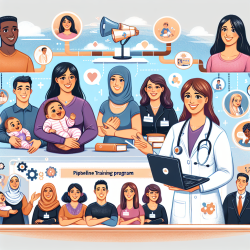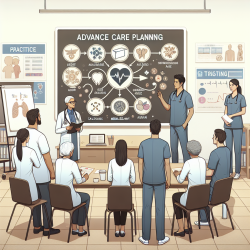Introduction
The COVID-19 pandemic has highlighted the urgent need for a comprehensive approach to epidemic recovery. As practitioners in the field of public health and education, understanding the intricacies of epidemic recovery is crucial for developing effective strategies. The research article "Modeling epidemic recovery: An expert elicitation on issues and approaches" provides valuable insights that can guide practitioners in improving their skills and approaches to epidemic recovery.
Key Insights from the Research
The research emphasizes that recovery from epidemics is distinct from natural disasters due to their potential to produce effects over large areas for extended periods. Epidemics can generate high levels of fear, anticipatory anxiety, and antisocial behavior. The recovery process is complex and nonlinear, involving multiple domains such as political, economic, sociocultural, infrastructural, and human health.
Implementing Research Outcomes
Practitioners can enhance their skills by implementing the following outcomes from the research:
- Holistic Approach: Develop recovery models that extend beyond strictly medical matters. Consider political, economic, sociocultural, and infrastructural aspects.
- Community-Specific Models: Tailor recovery models to fit the specific needs of different communities, taking into account social determinants of health.
- Interdisciplinary Collaboration: Engage with experts from various fields such as infectious diseases, disaster recovery, and public health to inform recovery strategies.
- Long-term Planning: Focus on creating sustainable recovery plans that build resilience and reduce future risks.
Encouraging Further Research
While the study provides a foundational understanding of epidemic recovery, further research is needed to develop comprehensive models and indicators. Practitioners are encouraged to engage in research activities that explore the following areas:
- Developing metrics for measuring recovery progress at the community level.
- Exploring the role of social determinants in influencing recovery trajectories.
- Investigating the impact of policy decisions on long-term recovery outcomes.
Conclusion
By integrating the insights from this research into their practice, practitioners can contribute to more effective and resilient epidemic recovery efforts. This will not only aid in the current COVID-19 recovery but also prepare communities for future health emergencies.
To read the original research paper, please follow this link: Modeling epidemic recovery: An expert elicitation on issues and approaches.










